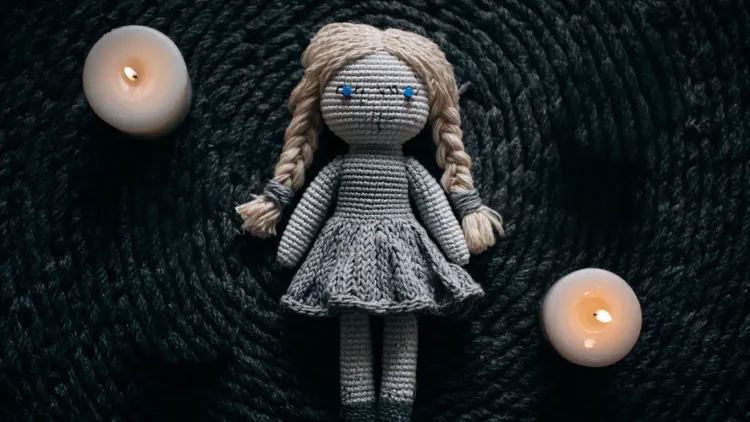I Will Find New Work

Mila sat in her cramped studio in Old Town, the walls pressing closer each night. The radiator clanked its metallic lullaby while she stared through the window at the falling rain. Two years, she thought, her breath fogging the window. Two years since I had a real bed. A real life.
The memory of her Nob Hill apartment never faded—sunlight streaming through tall windows, the hum of her laptop as code flowed from her fingers at Silicon Forest.
She missed her ex-boyfriend, Jeff. A relationship that deteriorated due to losing her job and income. She also missed her co-workers and their Friday routine of drinks after work.
Her world had shrunk to three hundred square feet of peeling paint and the persistent noise of her neighbor's loud music that kept her up most nights.
"I need to find a stable job," she whispered as she clutched her tea mug.
Morning came and she gripped her bike's handlebars and descended the graffiti-scarred stairwell, each tag seeming to shift becoming more vulgar.
The streets unwelcome, rejecting her aspirations. Her bike’s tires sinking into potholes as she weaved between the growing line of homeless camps. Her phone’s harsh buzz was her morning cue:
Pickup: Mirakawi Sushi
Drop-off: Smart Style Apartments 2B
Pay: $10.75
Estimated Time: 25 minutes
Her thumb moved automatically to accept. Dance, little puppet, rent is due, she thought bitterly.
At the restaurant, the pickup window slid open, revealing tired eyes that barely registered her existence.
"Your order's not ready yet. Wait over there."
The designated waiting area had become a congregation of lost hope. Other couriers slouched against the wall, their faces masks of resignation. A guy in a worn out jacket looked up from his phone.
"Been waiting fifteen minutes," he muttered, his voice hollow. "Same shit, different day."
Mila watched her app's countdown timer. Ten minutes crawled by. They're going to rate me badly, she thought, anxiety mounting by the minute.
"Order for Mila!"
She snatched the bag and checked her phone. Eight minutes left, but her GPS estimated twelve.
Her legs burned as she pumped up two flights of stairs, her heartbeat mirroring her pace. The apartment building's hallway stretched endlessly, 2B the far end.
"You're late."
The customer stood half-hidden behind his door, eyes flat.
"Sorry, the order was delayed at—"
"Hmm."
He pressed exactly $10.75 into her palm—two crumpled fives, damp with something she didn't want to identify. The door closed with finality. No tip.
She descended the stairs feeling dejected, another delivery with no tip. Three dollars for thirty minutes of my life, she calculated. How long can I continue like this?
On the street, her phone buzzed again. Her thumb hovered over "Accept"—and pressed it.
By ten o'clock, Mila dragged herself through streets towards home. Her studio welcomed her back, an abode of frustration. She collapsed onto the sagging sofa.
She reached for her laptop and typed the same desperate search: how to find a job. The results scrolled past but delivered nothing. Then something different caught her eye—a link that stood out:
How To Hack Your Brain For A Job
Her cursor settled over it. She tapped.
The webpage loaded slowly. The design was crude, almost primitive—black text bleeding into a background the color of old blood.
“What an ugly site,” she murmured.
BelieveItLiveIt
Find Love. Find A Job. Get Your Ex.
The words echoed everything she had lost. Mila's finger traced the touchpad, hesitating at the options. But find A Job glowed brighter than the rest, as if it knew what she needed most.
The instructions appeared in a typeface that hurt to look at—letters that seemed to writhe when she wasn't looking directly at them. But the method was simple. Childishly simple.
Write your desire. Cross out the doubled letters. Rearrange what remains into a symbol. Burn it. Forget it.
Mila found a scrap of paper. With hands that shook from caffeine withdrawal, she wrote: I Will Find New Work.
The words looked naked on the paper. Too simple for her desperation.
Following the website's instructions, she crossed out every letter that appeared twice. I W L F N D E O R K.
She began to bend them, twist them. Her cheap pen scratched against the paper as curves hooked around lines, verticals collapsed into horizontals. The letters lost their meaning, becoming something else—something that belonged to no human alphabet.
She stared at it until her vision blurred and doubled. At first, it was just ink on paper. Then the symbol seemed to expand and contract.
Her chest tightened. The edges of herself began to dissolve—worry, hunger, the ache in her legs from endless pedaling—all of it collapsed into a single, burning point of want. The symbol she constructed pulled at something deep inside her, something she hadn't known was there.
When the moment shattered, she gasped.
In the dim light of the table lamp, she held the paper to her lighter's flame. The fire curled inward, blackening the paper to ash. She watched each ember die, felt each spark fade into the dark.
According to the website, she was supposed to forget now—let the image slip into the place where memory became belief.
But the shape had burned itself behind her eyelids.
Afterwards, she set the makeshift ashtray aside, turned her phone face down, and collapsed onto the sofa bed, her jacket still clinging to her shoulders.
The following morning was gray as usual. The ritual felt like a fever dream now. Mila dismissed it as a mere trance initiated by the odd lettering and her prolonged gaze.
“How foolish to believe in this nonsense. Hack your brain.” Nodding her head sideways with sarcasm. “Back to work,” she whispered and grabbed her bike and headed out for another day of deliveries.
A delivery to Riverside Meat Processing seemed no different from any other—until she stepped into the administrative office.
While waiting for someone to pick up the food delivery, her eyes wandered to the bulletin board.
ENTRY LEVEL LINE WORKER
$20/HOUR - NO EXPERIENCE REQUIRED
IMMEDIATE START
The words leaped from the poster. Twenty dollars an hour. Real money. Mila's first instinct was dismissal—what do I know about slaughterhouses? It can be dangerous. But something made her look back. She decided to capture the job ad.
As she left the office, she did the math: Eight hundred dollars a week. Real food. Maybe even move back to Nob Hill.
That afternoon, as rain pelted against her baseball cap, she called the number. The voice that answered was gruff, weathered by years of shouting over machinery.
"Primary duty is trimming ribs," the man said bluntly. "Eight-hour shifts. Can you handle blood?"
Mila thought of her empty bank account, her growling stomach.
"Yes," she said. "I can handle blood."
Her first week at the slaughterhouse was dedicated to training. The old building itself vibrated with industrial rhythm—conveyor belts humming their mechanical hymns, the distant sound of saws. A plant that hadn’t been renovated in decades.
The supervisor stood over Mila, his words clipped to match the pace of the line.
“Keep the knife angled, not flat. You’re trimming, not hacking. Start at the top of the rack, work down the ribs, and don’t gouge the bone. Leave a thin layer, buyers don’t want it spotless, just clean enough.”
He paused for a second and continued, “too much fat and it comes back, too much meat and you’re wasting product. Smooth strokes, steady hand—that’s all there is to it.”
During those training days, Mila found herself treating each rib like a function to optimize, counting cuts in arrays of three.
A week later, she received her first paycheck. The number made her smile. A smile she hadn’t managed to wear in months. It was more money than she'd seen in a year.
This is what positive thinking does, she thought, carefully folding the check and placing it in her wallet. Things are finally turning around for me.
The following days, she arrived at the plant with more confidence than she'd felt in two years. The other workers nodded their greetings—she was becoming part of their fraternity.
She took her position at the rib trimming section.
Her supervisor walked by, “You’re a natural, Mila. Keep up the good work.”
Weeks later, Rodriguez, the worker beside her, frowned. “You feeling okay?”
Mila looked down. The ribs she’d been trimming had odd cuts—not the clean strokes she’d trained for, but strange intersecting marks.
“Maybe take a break.”
In the bathroom, she splashed cold water on her face. In the mirror: I W F N W. Her hands started shaking. The ribs. Those strange cuts Rodriguez noticed.
She returned to her station and completed the day’s work. But back at home, the entire symbol she constructed started to appear in the corners of her studio.
“What is going on with me. Am I losing my mind?” She whispered.
The next day she called in sick, knowing she wasn’t ready to cut ribs. As the day progressed she realized she wasn’t seeing the symbol anymore. A relief fell over her and she went to work the next day, a Friday.
Just before her shift finished, her supervisor approached her. “I know you were a bit off this week. Do the inventory. Lock up when you’re done.”
“Of course,” she said and apologized.
With Friday night's skeleton crew at the plant, Mila began to count the hanging sides. Nearing the end of her count, she saw the words END WORK carved on a carcass side.
She backed away. Her clipboard clattered to the floor.
The heavy door swung shut.
She pulled the handle. Nothing. The safety release—painted over, frozen stuck. She pounded until her hands went numb.
The skeleton crew had already left. Friday night. Monday felt very far away.
Her breath clouded in front of her. The frost on the walls made patterns. Or maybe that was just the cold already getting to her.
She thought about the letters again: I W L F N D E O R K.

